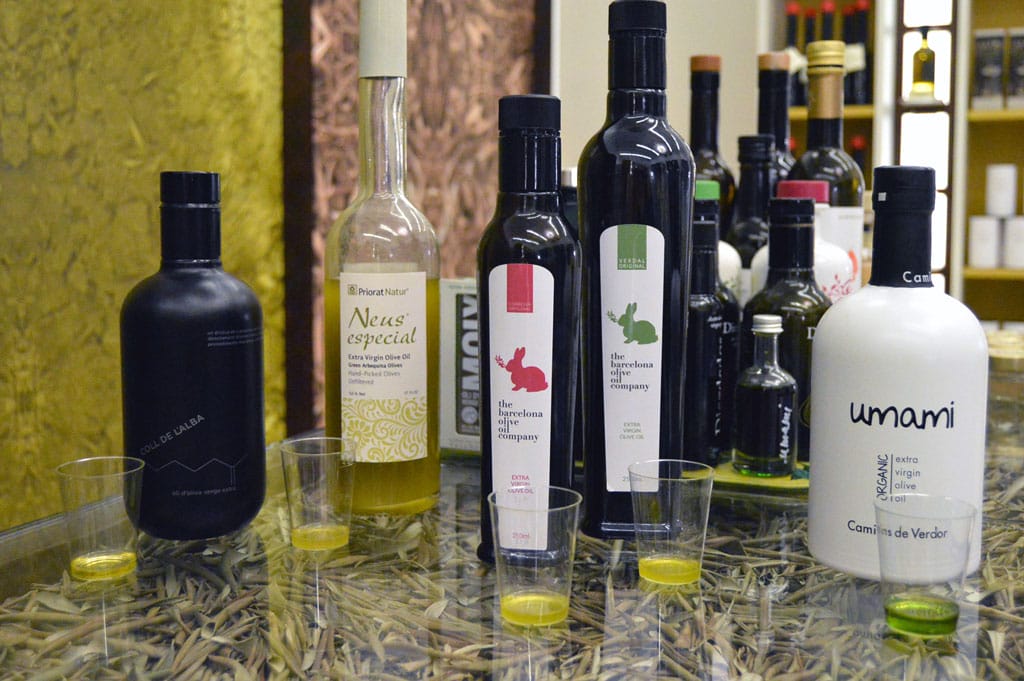In Greece, where the land is mostly rocky and steep and the climate hot and arid, the olive tree thrives, and for millennia, olive oil has been as essential to Greek cooking as the gnarled, silver-leaved trees have been to its landscape. Greece is the third largest producer of olive oil in the world after Spain and Italy and the greatest in consumption per capita.
Used liberally as a cooking fat for all manner of ingredients and preparations, as well as in its raw state to dress or flavor dishes, olive oil also plays an influential role in Greek baking, such as in koulourakia, twisted or coiled cookies, and paximadia, the twice-baked rusks that come savory or sweet.
Among the many, many native Greek olive varieties, a few are especially well known for the oil they produce. Koroneiki, the most famous, is grown in the Peloponnese and Crete, and makes up approximately 60 percent of the country’s total oil production. The oil made from this variety tends to be pungent, fruity, spicy and slightly bitter – ideal for all uses. Athinolia is grown in the same areas as Koroneiki, and in fact, they share a resemblance to each other, but with its more intense fruitiness and balanced peppery and bitter notes, Athinolia is suited more to drizzling on food just before serving. Grown mainly in the Peloponnese, the Manaki variety is mild and suited to more everyday use for cooking and frying, and Valanolia, cultivated on the islands of Lesbos and Chios, offers complex aromas and a strong fruity flavor and is also suitable for cooking.

In Athens, one of our favorite place to shop for domestic olive oil is Pantopoleion tis Mesogeiakis Diatrofis, located just opposite the old Athens Stock Exchange. It specializes exclusively in carefully selected Greek products made mostly by small producers, many with protected designations of origin, including “favas” (yellow split peas) and tomato paste from Santorini and tuna from Alonissos. There are scores of pasta, cheeses and cured meats to choose from as well. In the oil section alone, 200 producers and more than a thousand labels stand on the shelves. Three to look for:
Protolado Statir
Protolado refers to the first pressing of oil. Statir’s unfiltered oil is produced by Dimitris Portolos in Chalkidiki, Northern Greece, from Chondroelies olives using cold extraction. Each year, usually in early November, Statir releases a limited number of bottles pressed from the latest harvest, and we always rush to bring it home to enjoy its profoundly fruity, kicky flavors drizzled on salads and to finish most of our dishes.
Astarti Exclusive
After studying agronomy and organic agriculture in Crete and the Netherlands, Harry Tzortzopoulos returned home to Kythira to cultivate olives. The extra-virgin Astarti Exclusive is pressed from organically farmed Koroneiki olives and offers remarkable complexity, with both delicate and peppery notes. www.tzortzopoulos-estate.gr
Moria Elea Monovarietal Manaki
In Kranidi, Kostas Balafas and George Dimarakis produce fine olive oil from Manaki olives. Though they set up shop only in 2011, Balafas and Dimarakis have invested themselves in producing the highest quality. It doesn’t hurt that the branding and packaging are especially comely either. www.moriaelea.com

Mandragoras, located in the port neighborhood of Pireus, is one of the most historic delis in town. Among a vast selection of local artisanal and traditional products, here you will find carefully selected olive oil brands, mainly from the Peloponnese region in south Greece that are sure to impress you!
Anydri Ghi is an olive oil produced in Messinian Mani, a region where olive trees have been cultivated for centuries. As its name suggests (Anydri Ghi = Anhydrous Earth) this olive oil is produced from olive trees that are cultivated in this unique dry, warm climate, ideal for this variety of “Kalamata” olive oil, which is praised for its golden-green color and fruity aroma.
Therapni is an organic extra virgin olive oil produced in Laconia, South Greece.
Eleae is a Koroneiki variety extra virgin olive oil produced near Kalamata, at the foot of Taygetus Mountain.
Whatever oil you take home, be sure to store it in a dark and cool place, ideally in a tightly shut glass or tin vessel to keep the contents from oxidizing and going rancid. The fresher the better: it’s best to consume the olive oil within six to 12 months.
 October 19, 2020 Building Blocks
October 19, 2020 Building Blocks
Spain, Italy, Greece, Turkey, Portugal, Morocco, Tunisia – one thing that unites this […] Posted in Barcelona April 13, 2019 Building Blocks
April 13, 2019 Building Blocks
Feta must be one of the world’s oldest cheeses, it’s certainly one of the most famous, […] Posted in Athens March 5, 2019 Building Blocks
March 5, 2019 Building Blocks
You might not have heard of trahana, sometimes called rustic pasta, if you don’t possess […] Posted in Athens
Published on August 02, 2017
Related stories
October 19, 2020
BarcelonaSpain, Italy, Greece, Turkey, Portugal, Morocco, Tunisia – one thing that unites this swathe of the Mediterranean is olive oil, whose use in the Fertile Crescent can be traced back to 6000 B.C.E. Olives arrived in the southern part of the Iberian Peninsula around 9th century B.C.E. with the Phoenicians. Ancient Rome saw huge quantities…
Sample Greece's best feta with us our Downtown Athens walk!
April 13, 2019
AthensFeta must be one of the world’s oldest cheeses, it’s certainly one of the most famous, and it’s practically never missing from a Greek table, no matter the time of day. A person might grab a chunk of this chalk-white substance for breakfast, crunch through layers of feta-stuffed phyllo for elevenses, put a slab of…
March 5, 2019
AthensYou might not have heard of trahana, sometimes called rustic pasta, if you don’t possess a Greek grandmother. This humble food rarely turns up in tavernas, yet it is a staple, especially in the winter months, and the basis of many a comforting meal. In fact, it may just be the world’s first instant soup.…


















































































